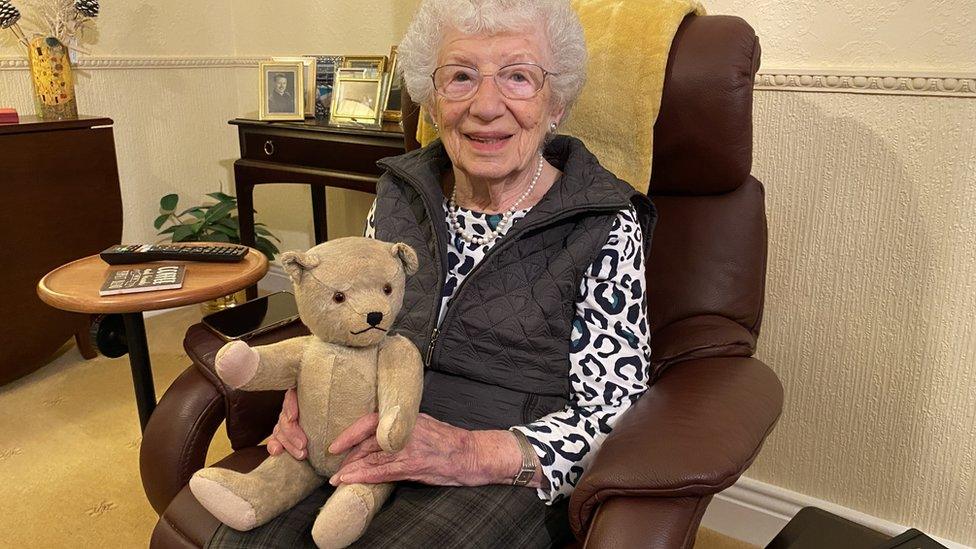Glasgow Kindertransport refugee celebrates 100th birthday
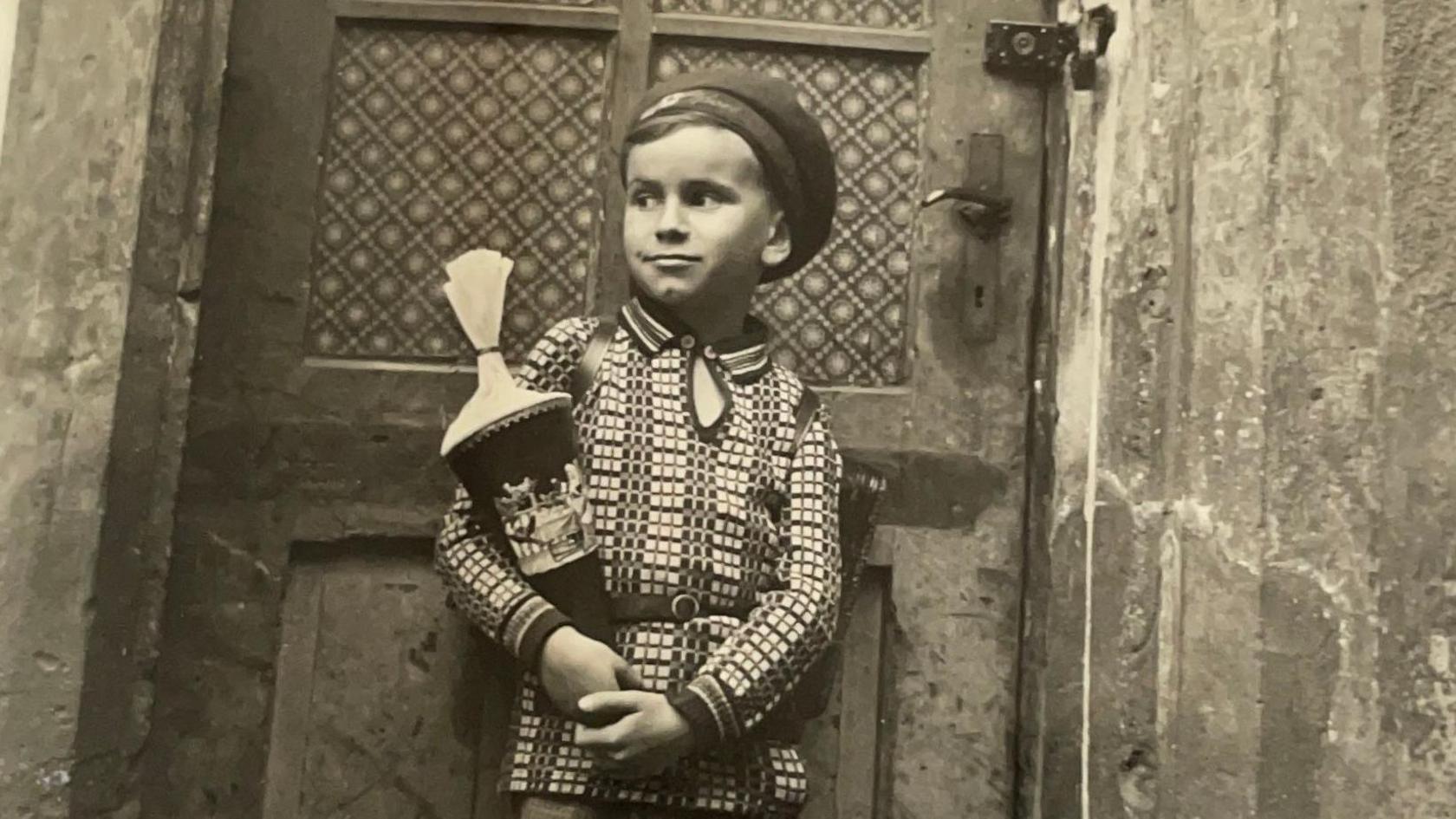
Henry was born in Nuremberg, Germany to Karl and Lore Wuga
- Published
Henry Wuga is a refugee based in Glasgow, who has just turned 100 years old.
In May 1939, as pre-war tensions were rising in his home country of Germany, he escaped to Scotland via a child safety mission known as the Kindertransport.
By the time World War II began, he was in Glasgow, a place he now calls home.
He and his wife, Ingrid, spent their later lives visiting Scottish schools to educate the younger generation about the Holocaust.
Reflecting back on his many years of life, Henry said: "I may be 100 but I don't feel 100. To be 100 is quite an idea."
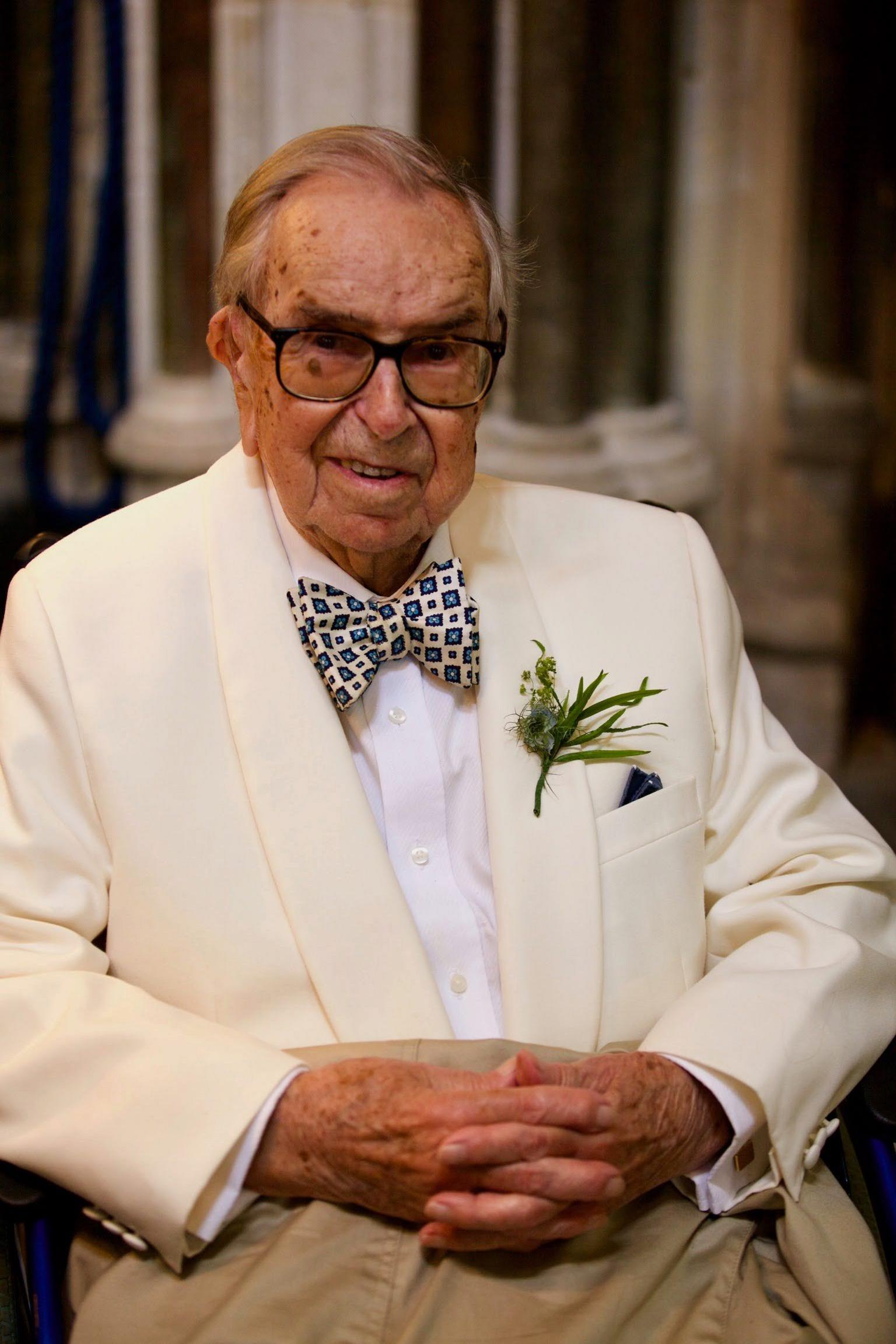
Henry's daughters say he is well known for his bow tie
Henry was born in Nuremberg in 1924 to Karl and Lore Wuga.
His family was Catholic on his father's side and Jewish on his mother's side and he was raised Jewish.
At age 14, he was forced to leave school and began an apprenticeship as a cook in a hotel.
After six months, Henry decided to go home on 8 November 1938 – the day before Kristallnacht, the night of violent Nazi attacks on synagogues and Jewish businesses.
In May the following year, he was able to escape the country via the Kindertransport to Scotland, where he was interned as an "enemy alien" after the war began.
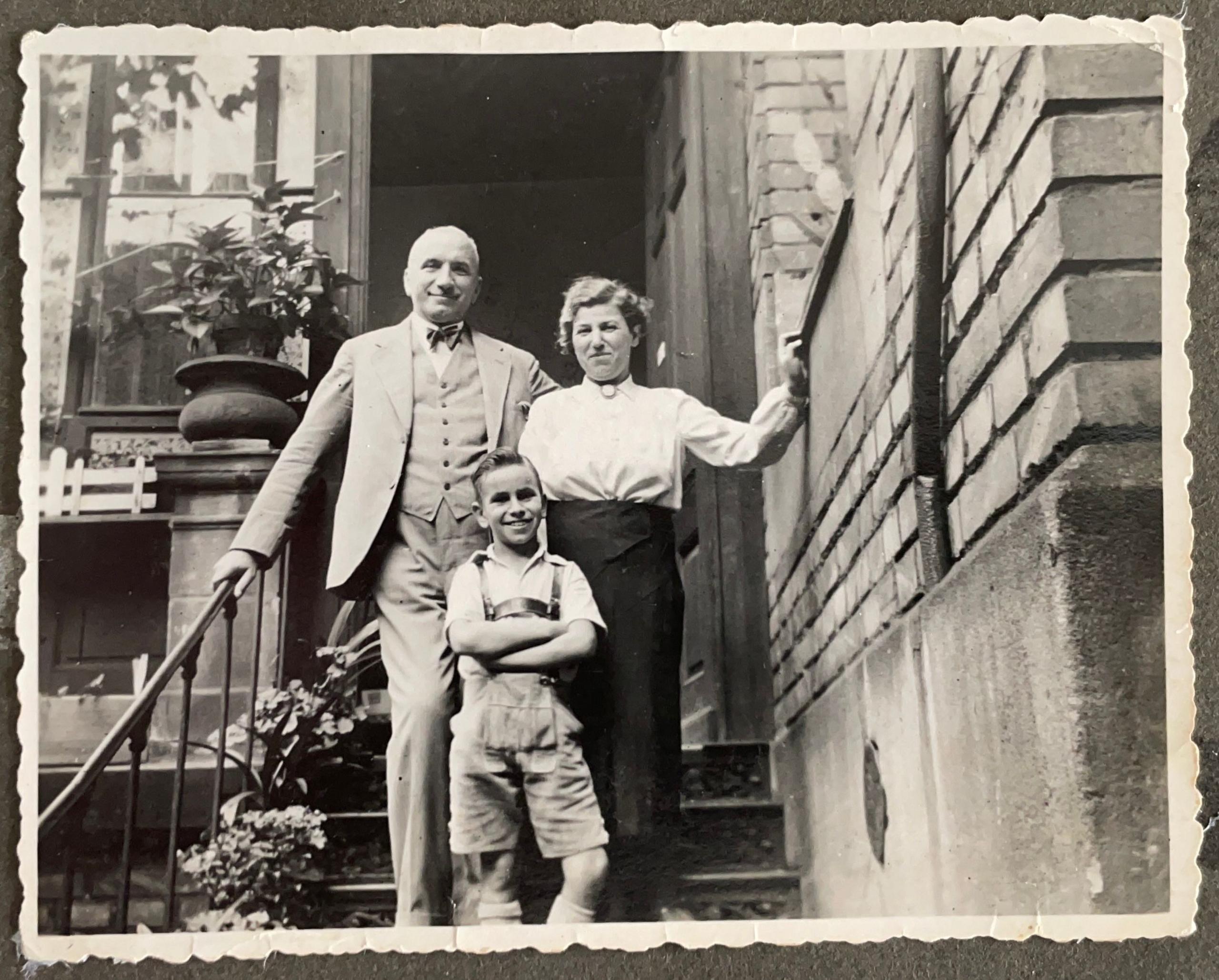
Henry with his mother and father outside their family home
What was the Kindertransport?
This year, the Kindertransport will celebrate its 85th anniversary.
The Kindertransport was the name given to the mission which helped 10,000 children to safety ahead of World War Two, to escape from Adolf Hitler's reign in parts of Europe controlled by the Nazis.
It is called this as kinder means "children" in German.
Holocaust Memorial Day: ‘It is imperative to never forget’
"New language, new food and new people, " said Henry of his first encounters with Scotland.
"You just have to cope with it and people being very friendly in Glasgow, it certainly helped.
"They took me in and allowed me to do certain things and I became a Glaswegian."
Scotland's WW2 Jewish refugee rescue
- Published1 December 2018
When he was sent to Euston Station in London to get on the Flying Scotsman, he thought he was in Paradise.
"A train with upholstered seats and a dining room with waiters wearing white gloves, serving hot chocolate out of silver teapots, it's not the kind of train I was used to so that was a very welcoming sight," he said.
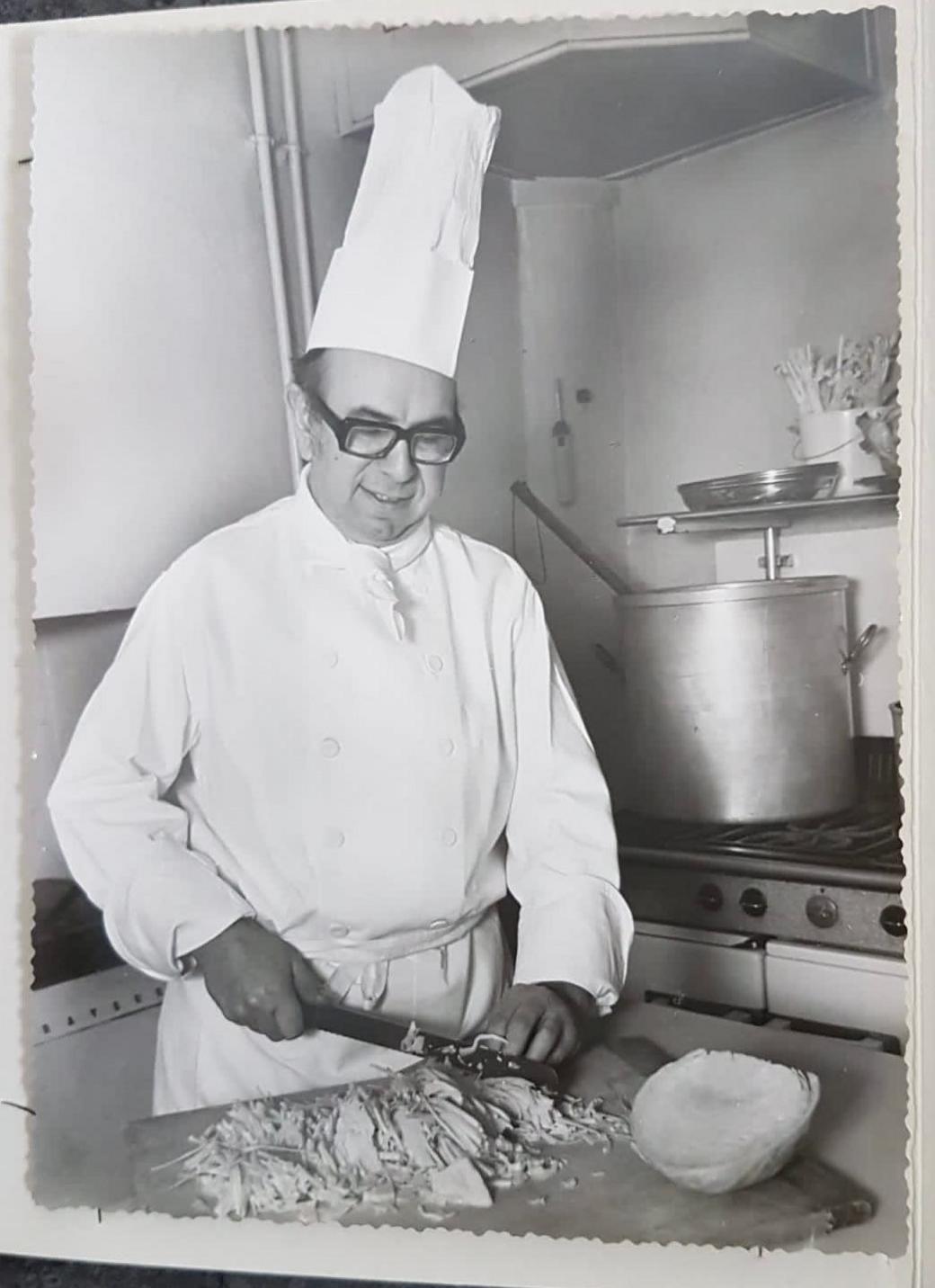
Henry as a chef in his catering kitchen circa 1970s
At 16 years old, Henry was accused of corresponding with the enemy and was taken into custody for sending letters to his parents via uncles in Paris and Brussels.
As a result, he was interned on the Isle of Man, but tried his best to embrace the experience.
Academics, professors and musicians were among some of the people in the prison, but he still was not free and spent 10 months there.
"On the Isle of Man, I was obviously behind barbed wire," he said.
"I was interned because I was perceived to be a dangerous enemy, I coped with what I found and then took out the best I could.
"It was very wonderful to be surrounded by people like that. I was only 16 so I took all that in."
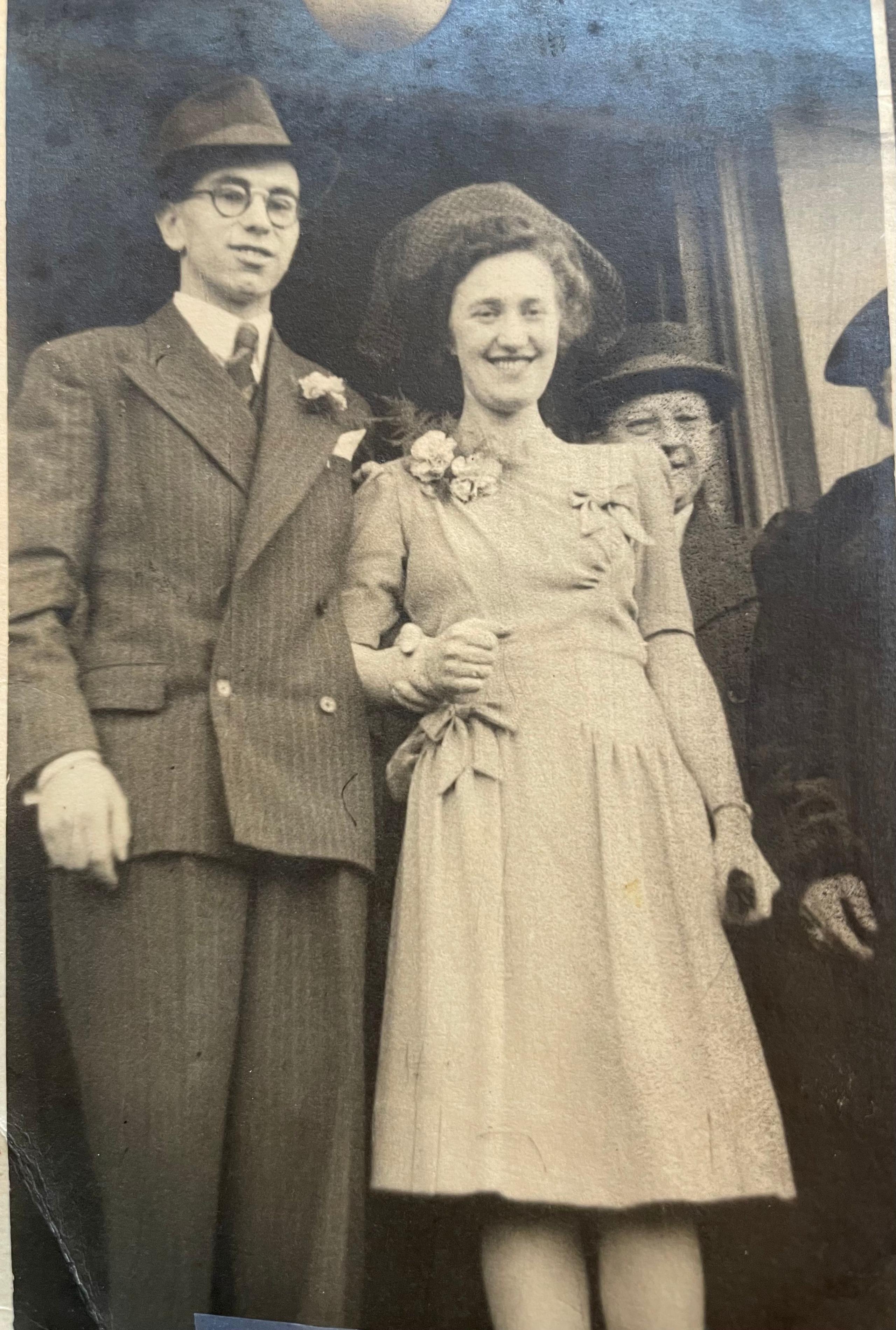
Henry and Ingrid on their wedding day
Henry returned to Glasgow and attended a refugee club, where he met people from similar backgrounds, including his future wife Ingrid Wolff, who had also come to Scotland via the Kindertransport.
They married in December 1944 and together the couple had two daughters, Gillian and Hilary.
Henry and his wife set up a kosher function catering business, which continued for 30 years.
In their later life, they toured Scottish schools and educated children on the "horrors that went on in the Holocaust".
"My wife Ingrid and I, we felt we had to fight against him to tell people how terrible Hitler had been," he said.
"So Ingrid and I went to hundreds of schools all over Scotland and talked to young people for many years.
"What's particularly important to me is that my two daughters have continued where Ingrid and I left off. They go to various schools in Scotland."
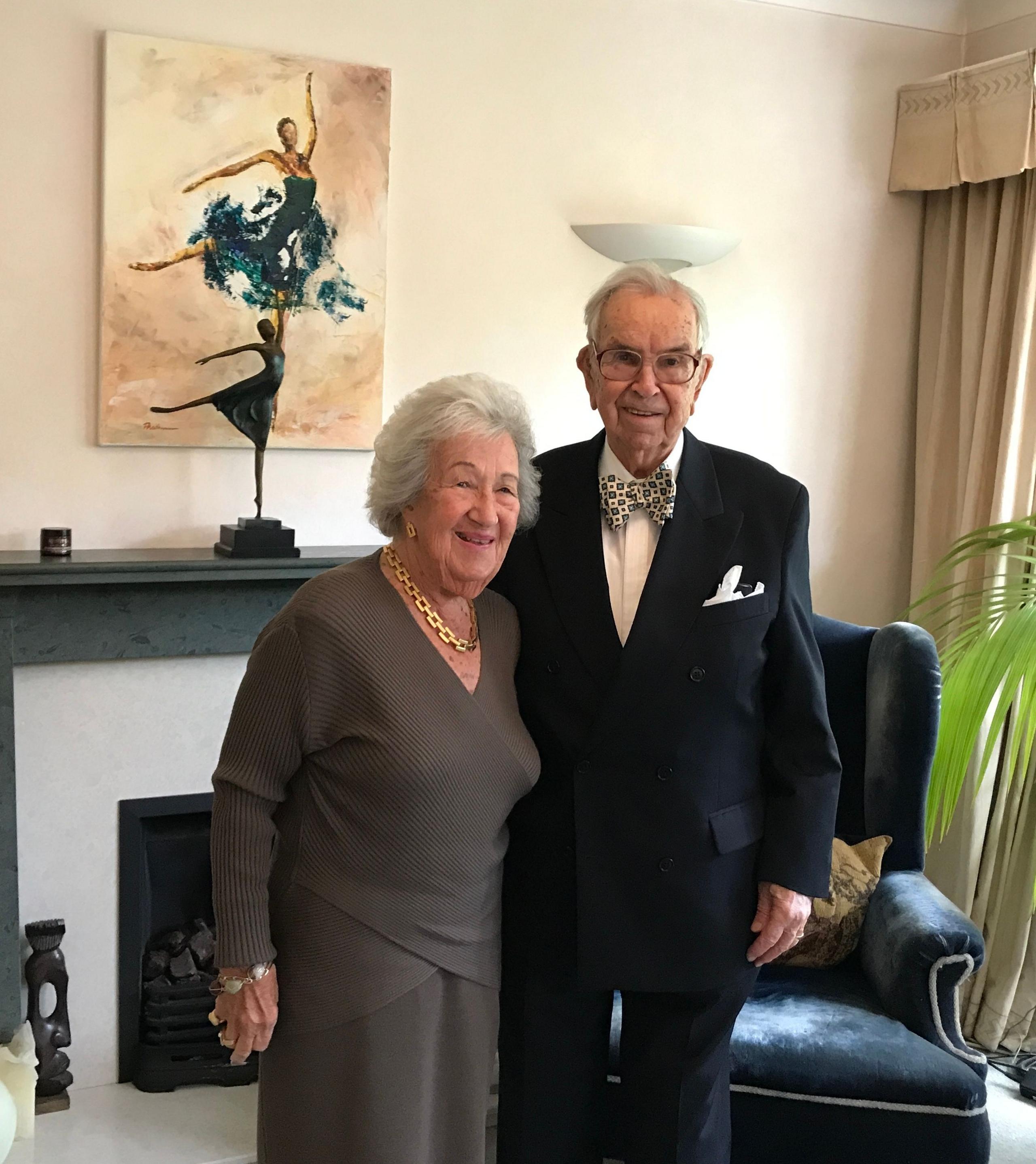
Henry and his wife Ingrid in 2017
Henry's daughters are both very proud of him.
Hilary Hodsman said her parents had 75 "very happy" years of marriage "joined at the hip".
"We've been very fortunate in having a very loving and happy upbringing," she said.
His daughter Gillian Field added: "He's pragmatic as they come and quite a role model to follow.
"He said to me this morning as he sat in the chair he is in now, it's not my 60th birthday? I said no it isn't because Hilary and I have already had ours."
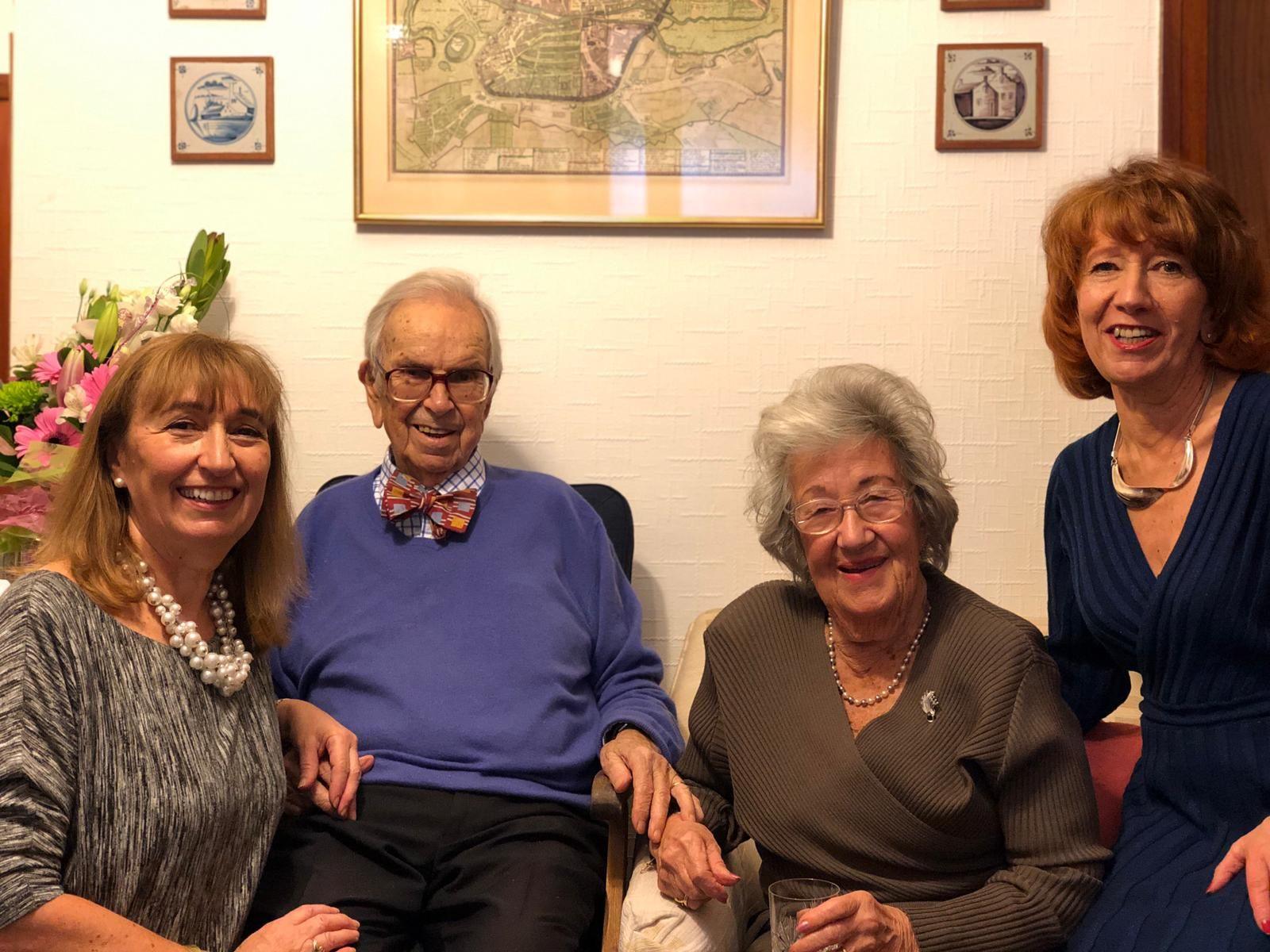
Gillian Field, Henry, Ingrid and Hilary Hodsman
Michael Newman, CEO The Association of Jewish Refugees (AJR) said it was an "honour" capturing Henry’s testimony and that he was a "much-loved member".
“On behalf of us all at The AJR, we wish Henry Wuga a hearty mazel tov and huge congratulations on the occasion of his 100th Birthday."
To celebrate his birthday on 23 February, Henry will be joined by all his family and he will be presented with a card from the king.
On Saturday, a big party is being thrown with 70 guests, including family from Cardiff, Sheffield, London and Edinburgh.
"I must say it's a bit overwhelming," he admitted.
"All the cards coming in, all the phone calls coming in and then you see all the friends you have, it's quite overwhelming."
Giving advice to his younger self, Henry has some wise words.
"I would advise to be kind to people," he said.
"To have the right outlook, listen to people, not to believe everything.
"To see what people are like and try and help anybody that's in difficulties."
Get in touch
What stories you would like BBC News to cover from Glasgow and the west of Scotland?
Related topics
- Published9 November 2023
